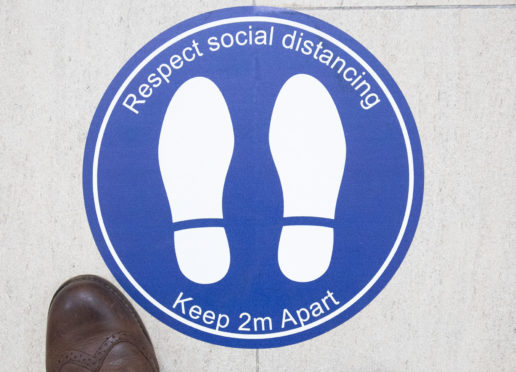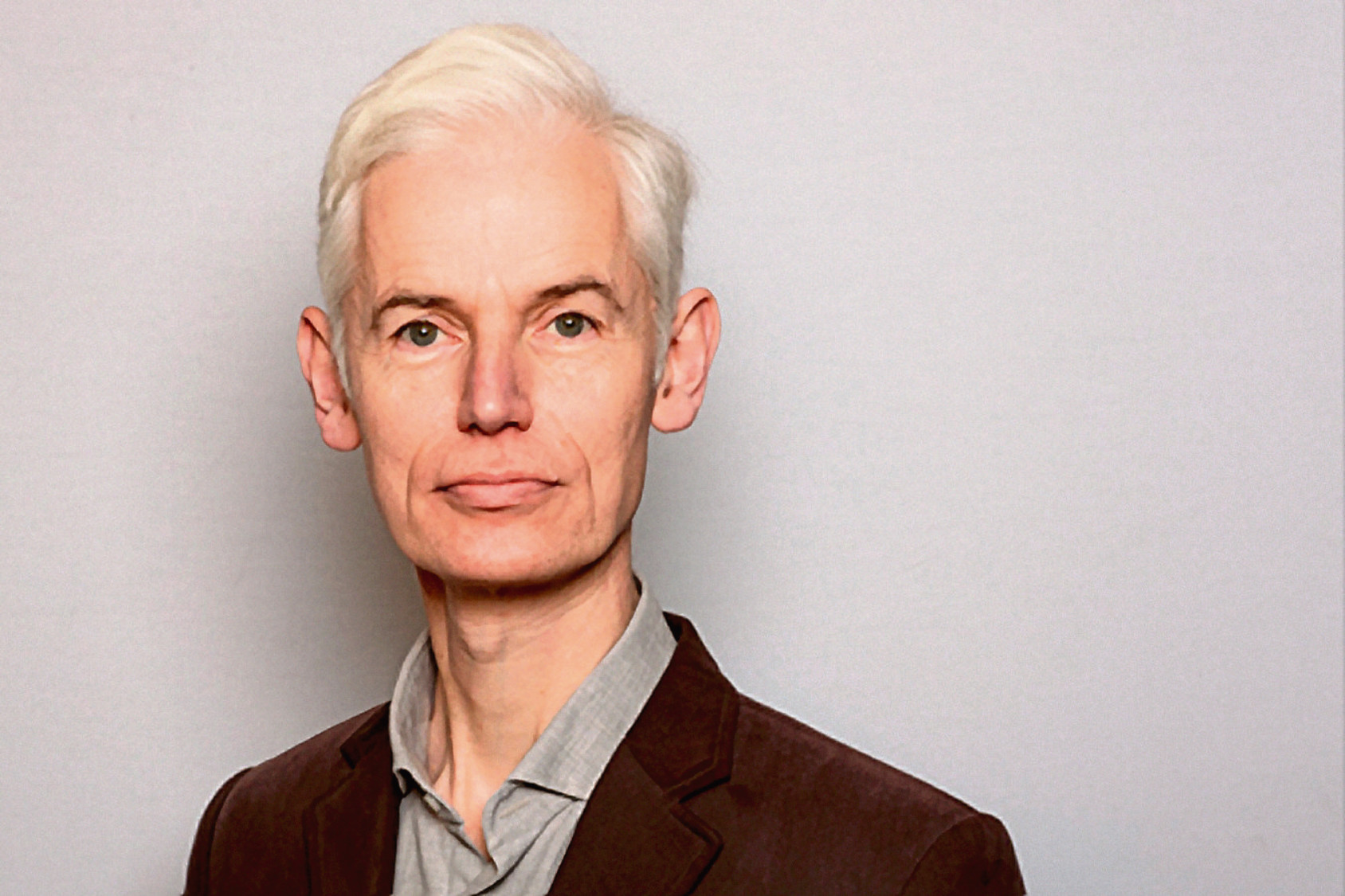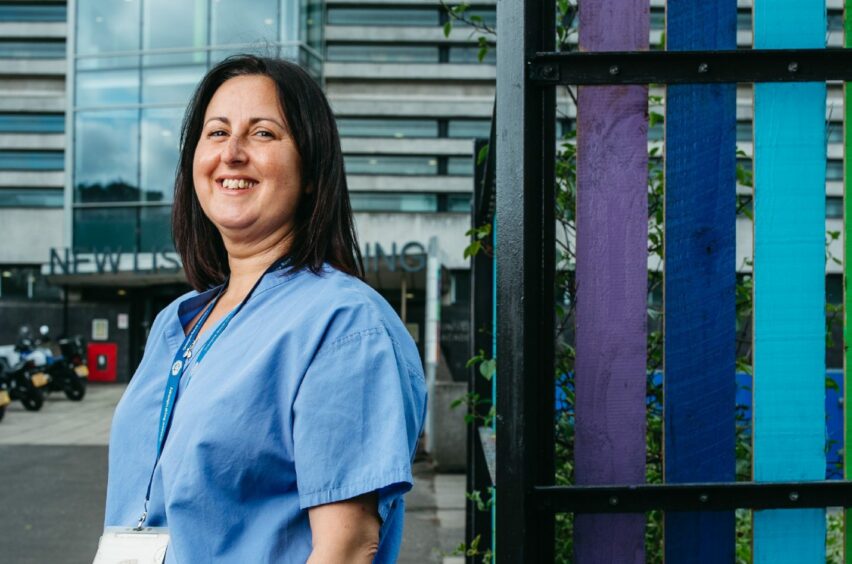
Scotland must delay the so-called freedom day planned for August 9, according to the world-leading mathematician whose Covid deaths projections were credited with persuading the UK Government to lock down last March.
Cambridge professor Sir Timothy Gowers warns that lifting all restrictions risks hospitals becoming overwhelmed and fears it is optimistic to assume the pandemic will be over by the end of the year.
Prime Minister Boris Johnson plans to end all remaining coronavirus restrictions in England on July 19 but the First Minister appears to be adopting a more cautious approach, saying last week her plans were not set in stone.
All of Scotland is due to move to the lowest level of Covid lockdown on July 19 before all restrictions are lifted on August 9, three weeks after England. First Minister Nicola Sturgeon will update parliament on the planned easing on Tuesday.
Gowers said: “It’s all very well to have August 9 as a target date but it should be flexible. Loosening restrictions while case numbers are going up and we’re still seeing exponential growth seems to me to be a very odd thing to do, particularly when the restrictions we have now are not that great.
“If, by August 9, it doesn’t look as though the peak has arrived, loosening restrictions will keep the growth going. It seems to me the target shouldn’t be a particular date, it’s after the peak has arrived.”
Three Scottish hospitals are currently at “code black” capacity, with virus case numbers averaging at just over 3,000 a day. The first minister said last week 3% of those infected still ended up in hospital – down from 13% prior to the vaccination programme – meaning as many as 100 a day could be admitted soon.
Gowers said: “I think we should expect hospitalisations to double every so often, the order of magnitude of a week to a fortnight. For that to continue for a while, we just have to hope the vaccinations kick in soon enough so that the hospitalisation rate doesn’t rise to some point where we’re back in a state of crisis again.
“To be brutal about it, there is a balance between the cost of hospitalising a certain number of people and the damage of lockdown. For understandable reasons, politicians don’t want to talk about it but they seem to have judged that the balance is in favour of opening up and accepting a certain amount of serious illness.”
The winner of the Fields Medal – sometimes described as the Nobel prize for maths – also criticised Scotland’s national clinical director Jason Leitch for promoting herd immunity in the days before the first lockdown. Leitch, one of Sturgeon’s key advisers throughout the pandemic, said on March 10, 2020 he wanted to gradually increase the number infected over a controlled period to achieve herd immunity. A few days later he urged people to carry on as normal and even “hug your granny”.
Gowers said: “Looking back now it seems completely extraordinary that anybody thought we could manage infections at the right level not to overwhelm the NHS because you just look at how many ICU beds you have, how many you’d need and how long the virus would take to get through the population. The numbers just do not add up.”
The mathematician was one of three experts credited by the prime minister’s former chief adviser Dominic Cummings for providing advice that led to a change in government plans and, ultimately, a lockdown on March 23 last year.
Sturgeon announced a formal “stay at home ” order for Scotland on March 24, telling MSPs: “In effect, Scotland is now in lockdown.”
Gowers said he feared the UK could still be battling Covid waves years from now, particularly if a new variant emerges that renders current vaccines ineffective.
He said: “If there is another variant, then all bets are off and, unfortunately, we are not working in a way to minimise that probability.
“If we’re lucky and Delta variant is as bad as it gets, I would have thought the level of vaccinations will get to a point where there will be enough immunity not to support another major wave after this one. The real question is how big is this one going to get. Maybe by the end of the year the worst will be over, maybe not. Maybe we’ll have to live with Covid-related difficulties for years.
“I think the hope that it will be all over by the end of this year is very optimistic.”
The Scottish Government said: “We have one of the fastest vaccination programmes in the world and are vaccinating people across Scotland as fast as supplies allow.
“We have been warning for some time about the continued risk of the virus spreading among all age groups – and the rising numbers in recent weeks show why we need to continue adopting a cautious, evidence-based approach to relaxing restrictions.”
Professor: Critical illness is not just about patients. It is a family crisis
by Janet Boyle
As Covid-19 swept the world, intensive care wards filled with patients battling the virus but doctors began to win their war of attrition with the virus, finding new ways of keeping patients alive.
Our expert knowledge of Covid is growing day by day but much remains unknown, including the potential long-term effects intensive care survivors will experience.
It’s these uncertainties which Glasgow University’s newly appointed professor of anaesthetics, Tara Quasim, wants to help resolve. Professor Quasim is an intensive care consultant at Glasgow Royal Infirmary but her work has included looking at the long-term outcomes of patients who have been in intensive care, work recognised in 2019 when she was made an MBE.
She said: “ICU patients before the Covid pandemic were usually older and recovering from major cancer surgery, road accidents and chronic illness. However, Covid-19 brought younger patients into ICU, some of them seriously ill survived and others, not.
“Those who survived appear to have made good recoveries. However, I did worry about those who were well enough to go home but were still on oxygen as research is ongoing into long-term effects of the virus.”
Many patients have a poor quality of life after ICU and can be less mobile, more dependent on family and struggle with ongoing health problems which can lead to depression and poor confidence.
Often, the families bear the burden of what doctors call Intensive Care Syndrome – a range of physical, mental and cognitive problems.
Quasim said: “Critical illness is a family crisis and the impact on them or caregivers has been clearly identified by research.”
The impact on families is considerable after living for weeks not knowing if a loved one will die.
“The family may experience their own mental health problems with depression, anxiety and post-traumatic stress disorder and then there is the patient care workload once their relative returns home. New financial problems and reduced return to employment have been shown to be common in critical care survivors and their family members.
“Analysis shows that only 56% of patients who were employed before admission to critical care, were back at work at 12 months after leaving hospital.
“For those who do return to employment, there is a benefit between work and happiness including improved and healthier quality of life and fewer symptoms of depression.”
Quasim said that although the Covid survivors she had treated had made good recoveries, early research suggested they, like other ICU survivors, might struggle to recover all of their previous capabilities.
She said: “Patients who have been severely ill by Covid-19 infection appear to be no different. Research shows reduced return to employment in the months following hospital treatment.”
Her honour was bestowed in recognition of her work with NHS Greater Glasgow & Clyde’s InS:PIRE programme which helps patients recover after intensive care.
Glasgow Royal Infirmary is responsible for patient care in an area where deprivation is more acute and life expectancy lower than in most postcodes.
Research by the Health Foundation showed working-age adults living in England’s poorest areas were four times more likely to die from Covid than those in wealthier parts of the UK.
Quasim said: “Our patients live in an area where some expect to be frail between 40 and 60.”
Many patients have benefited from nursing, physiotherapy, and psychological and peer support through the InS:PIRE programme. Quasim said: “We do this digitally, and through phone calls as not every patient has access to smartphones or iPads.
“We’re still able to access and refer patients to services such as a one-off appointment with psychology, Citizens Advice for financial assistance, and vocational rehab to get back to work. At the virtual clinic they ‘see’ the doctor, nurse, physio and pharmacist on that appointment.”
Quasim said she was following in the footsteps of her dad, who worked at Glasgow Royal: “I never left the city, except for a year-long job in advanced ICU at a Birmingham hospital.”
At first her career veered towards surgery but an interest in how patients cope after major operations saw a secondment to intensive care and a career in research.
“Anaesthetics and surgery are different ends of the same table and very much interlinked,” she added.
She is most proud of her work with patients: “I am doing a job I love and like most doctors, I get a great satisfaction in seeing very ill patients recover. And yes, there are those I will never forget – people with huge potential whose lives took another path.
“Working in Glasgow keeps you grounded, and that’s so important to me.”

Enjoy the convenience of having The Sunday Post delivered as a digital ePaper straight to your smartphone, tablet or computer.
Subscribe for only £5.49 a month and enjoy all the benefits of the printed paper as a digital replica.
Subscribe © SYSTEM
© SYSTEM © Andrew Cawley
© Andrew Cawley